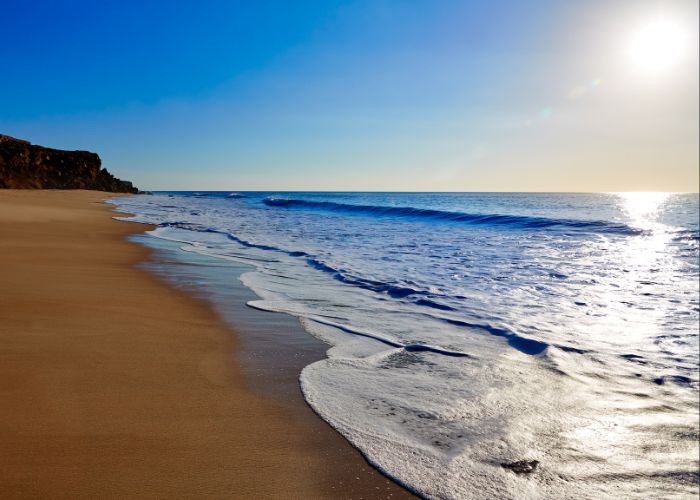MADRID – The tourism sector in Spain has a new target group: the energy tourists, or rather ‘energy refugees’: Northern Europeans who are cheaper in Spain in the winter months than when they pay the energy bill at home.
Spain naturally owes its appeal as a winter holiday destination to its privileged climate compared to the rest of Europe. The winters are much milder than in countries further north. This applies in particular to the south of the country and the Canary Islands. The latter with practically the same temperature all year round.
Significant increase in reservations from Northern Europeans
Operators of hotels and apartment complexes in the sunniest and warmest regions of Spain, such as the Canary Islands, the Costa Blanca and the Costa del Sol, see reservations from Germans, British, Dutch and Scandinavians for the coming months skyrocketing. People fear a difficult winter due to the cold, the energy crisis and inflation.
See also: Wintering in Spain to save on energy costs?
Where at the end of the last century millions of European retirees chose Spain as a destination to escape the cold in their own country, they are now fleeing high energy bills. For many, a three-month winter stay turns out to be cheaper than spending it at home with the heating on and a regular hot shower. The fact that Germany has promised a compensation bonus of €300 to all pensioners lowers the barrier to packing the bags even more.
Increase in long-stay reservations
Hotels in Spain have seen an increase in long-stay reservations. It concerns stays with an average of between two and three weeks. “Reservations for periods longer than 21 days have increased by 5% compared to 2019,” emphasises the hotel company RIU. It is based on data from the chain’s 18 hotels in the Canary Islands. The main change in reservations is the strong increase in arrivals from the United Kingdom, which will compete with Germany for first place as an issuance market.
More aeroplane seats
This increase in reservations is also related to the significant increase in the air capacity of the British Jet2 for the Canary Islands. The airline offers 890,000 seats, which is an increase of 15% (more than 280,000 seats). That means the company can maintain a 38% market share for flights from the UK to Spain between January and September.
Related post: 30% rise in places to the Canary Islands for this winter
Retirement and digital nomad reservations
However, energy tourists are not limited to the Canary Islands as a winter destination. Nuria Montes of the hotel organization Hosbec in the Valencia region points out that they have noticed an increase in reservations for cottages on campsites and apartments. This mainly concerns pensioners and digital nomads, who choose to spend a holiday in Alicante. More than 90% of those who come are British,” Montes said in Cinco Días.
See also: Digital nomads: Reasons to work in Spain
TUI, Europe’s largest tour operator, also recently noticed the trend of longer winter holidays for Northern Europeans in Southern Europe. However, the travel organisation concludes that it is more a matter of a trend fuelled by widespread teleworking and the increased flexibility after the pandemic that attracts long-term and business tourists, instead of mainly energy tourists.
Organisations that rent out apartments are also seeing a strong increase in the number of long-term stays. One of these is Belvilla by OYO, a holiday rental company with a portfolio of 40,000 properties worldwide (1,500 in Spain, mainly on the Costa Brava, Costa Blanca, the Andalucian coast, the Canary Islands and the Balearic Islands). The organization sees that holiday homes are reserved for longer periods. Annually, reservations for stays of more than 15 days have increased by 24%. Bookings of one month or more have increased by about 20%. Whether this increase is partly attributable to the development of energy prices, the company does not want to confirm.
Hotel chain Meliá emphasises that although reservations for January 2023 are below 2019 numbers, the reservation pattern has changed. An important part of the reservations is made last minute and a maximum of one month in advance. That is why Meliá foresees a good winter season, with a similar occupancy as 2019.
International media about the trend
Various international media write about the possible trend of energy tourists. Thus quotes EuroNews a Dutchman in Benidorm who indicates that his stay in the Spanish seaside resort is cheaper than turning on the heating at home in the same period.
The I Paper quotes hotel owners as saying that the number of reservations of three weeks or longer has risen sharply in the coming months.
The Independent talks about ‘thermal tourism’, from which especially Greece and Spain try to earn some extra money. The Spanish Federation of Tourist Apartments is quoted as saying: “People are discovering that it is cheaper to come to Spain than to turn on the heating at home”.
Le Petit Journal points to the German energy bonus scheme of €300 for pensioners. Many have been planning a vacation in a warmer country ever since. The Canary Islands has successfully appealed to the energy tourist, it seems, as the number of reservations for three-month stays has increased by 20%, according to this medium.


